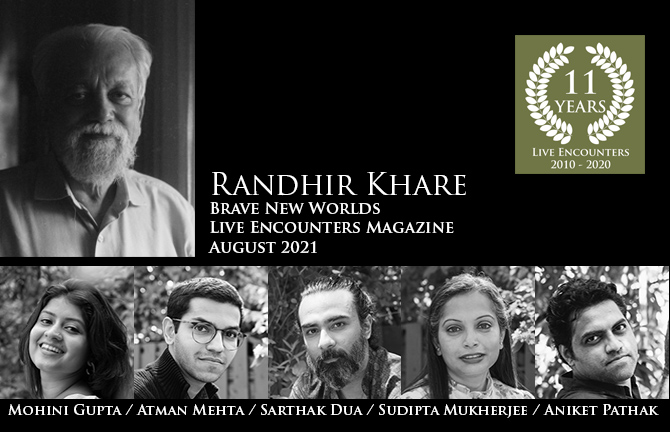
Live Encounters Magazine August 2021
Poet, novelist, artist, teacher and playwright, Randhir Khare moves from role to role effortlessly, reinventing himself, expressing the modern-day spirit of the Renaissance through his creative work which has garnered numerous awards and accolades. He has published thirty-six volumes of poetry, fiction, essays and translations and has had seven solo exhibitions of his art. His new book of poems Travelling Light and memoir The Flood & After is soon to be published. Apart from his numerous public commitments and his own creative pursuits he is a professional mentor to children, young people, young adults and emerging artists and writers, encouraging them to find their own voice through the arts. https://randhirkhare.in/

Book available here: https://www.amazon.in/
Mentors are meant to be invisible spirits who inspire, enthuse, guide and assist seekers to become who they truly are then walk away and leave them to strike out on their own adventure and strive towards their own goals in their chosen life purposes.
But it’s quite a different experience when one chooses to be the mentor of writers, poets, artists and other creative individuals. How does one begin with them? When does one walk away? And between meeting and parting, when worlds collide, merge, separate and give way to new worlds, who changes? The mentor or the mentee?
In my opinion, both.
As a mentor of artists, poets, writers and creative individuals, across the decades, I am transformed along with each one of them in a special way. Sometimes dramatically, at other times subtly. Every time I am born anew.
From among the numerous writers who transformed themselves and transformed me through the mentorship experience, five are memorable. I remember each so vividly as they walked into my life for the first time, went through their epiphanies and then moved away, leaving me whole. During the mentorship process, I discovered that each of them had gone through experiences that transformed them and shaped them…but each had not been able to fully express these experiences enough to liberate themselves.
And so our love affair with the experience of becoming began. Out of this love affair has emerged five powerful personal accounts.
Sarthak Dua, known for his soulful lyrics, hauntingly beautiful voice and accompanying guitar, has written powerfully in his account, Sipping Tea With The Dark, describing an uncluttered view of his journey of self- discovery through a sweeping narrative that gushed out like a turbulent spring and meandered away.
Film maker Atman Mehta has written a memorable account –I Had Too Much To Dream Last Night – a visual treat, drawing the reader into cinematic sequences of childhood and teenage experience sliced out of his life and eloquently fused together to produce a moving recollection of his very personal journey, still raw from the hurt and the searching. Its most precious gift is its warmth and deeply felt humanness, carrying within it the power of transformation.
Mohini Gupta‘s Unbounded, I Float, delicately explores the experience of not belonging and the struggle to fit in. It reaches out in a language that is at once personal and lyrical as well as embarrassingly honest. At its gentlest – it is inspirational and at its strongest it forces the reader to remember and acknowledge the fractured moments of instability that we have all had to face in our growing years and the personal courage and fortitude that we have displayed in overcoming them.
To B.E. or not To B.E by Aniket Pathak tells the story of a young man’s dilemma in a world of parental expectations and societal pressures. In a straightforward and un-pretentious way, he traces the events of his journey, taking the reader carefully across a landmine of social and psychological challenges until he reaches a space of self-discovery and acceptance. Reflective and thought-provoking, his writing sets the reader thinking.
Sudipta Mukherjee takes on a wider canvas in Turning Towards Light, deftly negotiating the path between fact and fiction and telling her own story of coming to terms with life and death with responsibility and maturity. Through a carefully unfolding narrative, she holds the reader with her engaging manner of storytelling, making the bizarre and unfamiliar real and believable – a skill not easily found in emerging writers.
When these life-stories were written, I stepped and asked each of them what they experienced when writing out of their intimate worlds. What was that journey of transformation like? Here’s what they had to say, each in their own inimitable way.
As I present these five amazing writers to you dear reader, a collection of these stories appears in the form of a book THE WIND IN OUR SAILS (Published by Vishwakarma Publications) and their life experiences travel out into the world like winged seeds.
As mentor, I can now walk away.

Mohini Gupta
When I started writing, I was scared to relive a time in my life that felt like it had been buried so deep inside me that I’d really have to make some serious emotional effort to excavate it. And yet it was clear to me that this was the part of my story that for that moment, had to be told. As I wrote, I could hear in my own words the heartbeat of a young girl yearning to both be understood and to understand a world that shifted too quickly before her eyes. At first, I attempted to tell her story with an almost objective distance, but I very quickly realised that it was my proximity with her – with her rhythm, her emotions and the thoughts most personal to her, that made her story worthwhile. Stripped of these, the story is quite ordinary. But having written this otherwise simple story, I do believe now that it is in being honest with and reflecting on our most seemingly ordinary experiences that we discover the most extraordinary truths about ourselves.
My biggest struggle was possibly not getting trapped in the past. Once I had decided to write intimately and honestly, there was no turning back. I wrote freestyle – without overly editing my thoughts as I moved along. I allowed the words to appear on the page in the same rhythm in which they appeared in my mind. It was a struggle to not ‘retouch’ those words and not overly edit them because some of them were painful. It was also a struggle not to cut out parts of the story that felt just too personal to share. I wasn’t hiding behind a character, I was the character. I still have to remind myself that my story is just a part of the common human experience, and ground myself in the knowing that vulnerability is a kind of superpower that I should be proud of rather than shy away from.
There was also the question of “what part of this story is mine to tell and what isn’t?” It wasn’t easy to always make a compassionate decision, although I intended to. I hope in the end that I was able to share with integrity what was true to me, and I hope that I’m received with the understanding that this is only one person’s version of this story after all.
Completing the story felt anti-climactic on the day of completion. I doubted that it was of any real worth in the world, I wondered if anyone but myself could understand it, and in the end, I just shut my laptop and decided to celebrate anyway. I could feel what writing this piece had done for me personally. It felt like a weight had been taken off my shoulders. I felt lighter and more alive that day, and so I decided to live that way while I was basking in that energy. The next day the self -doubt came creeping back in, and it was only really after I shared the story to be received, and I spoke to my mentor that I became comfortable at seeing my words as a completed piece of writing that could hold worth outside of what it held for myself. Re-reading the piece still feels strange because it’s so personal, but I do feel a kind of healthy distance from that part of the story of my life now that I didn’t feel before, and I’m grateful for that.
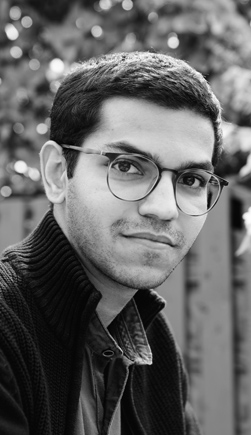
Atman Mehta
I didn’t know where I was headed initially so there was unease. A constant push and pull. A reluctance to carry on but a compulsion as well. Until a momentum took a hold of me, after which the piece just about wrote itself. One thing led to another which led to another and I simply began to let my instinct carry me through.
I had not written much before this and there was a lack of confidence and self-trust. There was a fear of exposing myself – to me and the world – of finding out that I knew absolutely nothing about how to go about this. Of shattering everything that I identified myself as. The initial days were nerve wracking. But as I went through those I realised that they seemed more difficult in my head than they were in reality.
It dawned on me that I don’t have to write the whole thing at once – I can possibly only attempt what I’m writing in that present moment. So there was little use worrying about something that I wasn’t facing in actuality. A lot in this phase of the process was about understanding my own responses, how my mind functions. And when it comes to a creative act the mind plays a lot of tricks on you because it wants to avoid discomfort at all costs. And writing is about confronting that discomfort and making friends with it.
The biggest challenge was self-doubt. I felt like I had a lot to say but would I find the right words to say it? Would I be able to be truthful to the experiences that I speak of? Could words truly communicate what I went through and how I felt? I wondered how I could translate lived experience into writing without losing an energy and authenticity.
Only much later did I realise that all these questions were just masking my biggest fear which was that if I dove into myself and my life, I would never be able to get out. So, it was no surprise that for the longest time this worry didn’t allow me to begin in the first place!
But when I overcame that block by just writing – and not judging whether it was any good, while at it – I was unstoppable. I found as I strung together line after line, page after page, that not only was I being able to express what I wanted to, but I was intensely re-living those moments and learning about my own journey in so many new and deeper ways. I could never have imagined it. I had always thought that I had to know myself before I began to write, when in truth I can safely say, that I hardly knew myself at all – until I began to write.
I felt an overriding sensation in my body which was a result of the ecstasy that comes with expressing yourself, and the void which follows the completion of a work. Comfort and discomfort. This simultaneous fullness and emptiness lasted for a while, leaving me with a bittersweet taste. There was the joy of having written it all out but also a tinge of sadness about the same. Eventually, a humility arose when the realisation occurred to me that I had no real understanding of how it was written, where it came from and what to make of it. I had become so engrossed in the activity that logic and reason had been suspended. Something else was driving the writing and I was just present, open for it to flow.
For weeks I wondered how it all came together. How did each moment I was describing open itself up into a whole world in front of me, where I could see new details, have new interpretations and draw new meaning? It was my first such experience of becoming a medium – it all came ‘through me’ and not ‘by me’. I was not in control. This blooming of awareness brought about a respect for the creative process. I became more perceptive of its inherent meditative quality – the possibility of merging and becoming one with what you are creating. It brought about a dramatic shift in my perspective and personality.
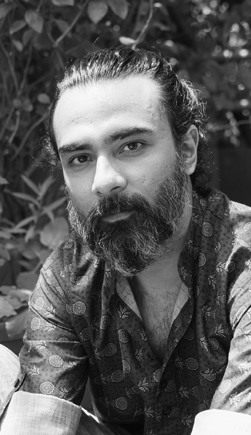
Sarthak Dua
The first thought that occurred to me was ‘where do I begin?’; that when can I really say that this turning point happened for me. Though, the very word ‘turning point’ has ‘point’ in it signifying that it is kind of supposed to be something specific or clear in its existence but ironically this ‘point’ was as abstract and spread all over the space for me as it could have been. I realised that to really be able to write about my turning point, the one that really made me make this choice of wanting to go with music, writing and things alike, I’d have to start writing from the earliest of my childhood memories; as far as I could almost remember anything at all about life. The only thing clear in my head was that everything I was ever wanting to do was leading me towards this turning point; that the desire to finally be able to do something like this was there from a time unknown. So , there I was almost writing my life story until now and realising that how Music was a part of me for as long as I could remember.
To kind of sum it up, I’d say that my sense of hearing has been responsible for gaining a major part of my experience of life. It would cast like a spell on me and take me away from the world of language and words when I’d listen to a melody or a rhythm around me, and just let me be without the need of understanding anything. Now, the spell has become even more powerful with some melody or rhythm playing out from whatever I can fix my ears to and just LISTEN.
I’d have to say that my biggest struggle was the same as the first feeling or thought I had when I had to start writing my story, which was, that where do I really start. Then after figuring out that it had to be kind of an autobiography of my life until now, the next big challenge was on how to keep it concise so as to be in line with the word limit. While I am writing this, I am realising that my major struggles with writing this chapter were mostly practical, with the last one being that ‘Will I be able to finish it in time’.
I had no real issues with being vulnerable or transparent about my life and the people in it. Just that, yes, I had to change a few names in case those people weren’t comfortable about some details I put in.
Also, I feel I don’t have a very good memory and so when an experience that happened prior to another would come back to me after having written about the latter, I’d to go back and find a way to place it appropriately since I was writing in a chronological order. Lastly, I wrote it the old school way, that is, using a pen, pencil and a paper, and so, to finally type it down and send it across was one of the most struggle some moments that I can remember but thankfully enough, the girl I was with at that time helped me with it. So, I’d have to say that one of my biggest struggles was neutralised by love.
Since it was kind of like writing an autobiography for me, it helped me really look at my life in a more clear way. It helped me give words and hence, establish an understanding of the things that I was just doing in a kind of flow may be. It was like these pages had become a teacher to me. One of the most important things I feel it gave me was to remind me of one of my major turning points in life where from being a bluntly honest, outright person I transformed into becoming someone who would keep everything to himself. It helped me see how it was only natural from here on to start developing different ways to truly express myself. After that incident, words had kind of become my enemy but the want to express was still very much there and so, it helped me listen more, see more, observe and really adopt other forms of expression like Music. So, in a way it also helped me see that how everything is so connected and that that incident, though very painful, was just a way to silence me a little so that I could be directed to where my heart was and still is.
I’d like to sum it up by saying that there was also a sense of relief, with both the extremes coexisting, and hence, it felt kind of complete for a while.
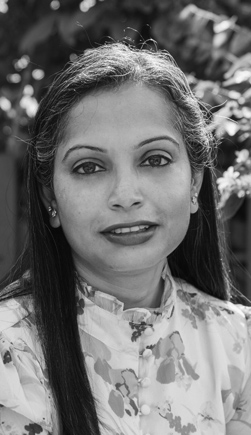
Sudipta Mukherjee
For me, initially it was immensely challenging; the very idea of penning down an age beaten memory. Bringing into light a story that is at once complex and ethereal; otherworldly. Because, until then, Pranab Kaku (the protagonist of the story) was an intimate affair, residing in the grooves of my mind. An aspect, I had never shared with anyone. Not that I was shy of revealing, but that, I never felt the desire to reveal. Never felt an urge to offer before the world the unique life of a person with whom I had once walked a few steps. He was neither my relative, nor was he a friend. But for some reason, he lingered in my mind, like a memory, a good memory.
Then once I started writing, all the thoughts and images came back to me, gushing, nearly overwhelming me. The feeling was amazing. It felt like a story of yesterday that I am writing today. It felt like reliving a small part of my life, all over again, and with an enhanced feeling of joy.
As a writer, I have not faced any challenge writing it, given the fact that transforming thoughts into words comes naturally to me. Knitting words is my passion, and I totally love doing it. Feeling the soft pulse of vulnerability within me, realizing with increasing finality, the unadulterated reality of my inside world. Whether it is fiction or non-fiction, I thoroughly enjoy the journey of walking through a blank page and crafting a story out of it. A story that would remain alive in the minds of my readers, long after they put the book down. Its relationship of another kind.
But yes, since this was my first non-fiction work, technically speaking, I had to be little careful with the chronology of events, and details. An incorrect piece of information could portray a different character and, in the process, totally alter the dimensions of the story. That actually made me more conscious while writing.
And then, the theme of my chapter, dying and death, and coming to terms with both, as a topic, was slightly difficult to handle. Not that I was unsure of what to write. What worried me more was how to express the things that I intended to write without being too raw or too subtle. The proposition was difficult, undoubtedly.
I felt strangely liberated in the end. The fact that an element of my mind, that was locked within me for so many years, finally got emancipated. And in what better way than a story? A really heart felt yet powerful story. The feeling was exhilarating. The absolute delight of telling oneself, ‘I have done it!’ A chapter closed. I don’t think I would ever go back to that chapter of my life, ever again. Once I have penned down all that I had inside me, I am done with it forever. It’s kind of like shedding a load off my shoulder, ‘a feeling light’ kind of a thing.
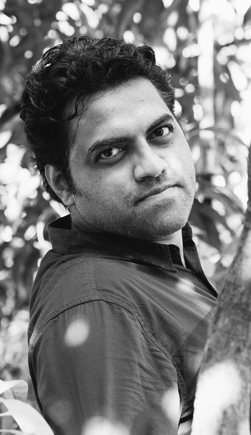
Aniket Pathak
When I started writing my story it had been six years since I had dropped out of engineering college. All that time had passed without my parents knowing about it and somehow I had managed to hide it all from them. At times I thought that it would be a secret that I would take to my grave and it wouldn’t really affect our lives much…but yes, the burden of hiding something from your family, especially a choice that you take pride in brings a different kind of guilt and shame. So when I started writing this story and thinking about how it would shape up I decided to use it as an opportunity to have a conversation with my parents. And so I wrote it as a letter to my mother, trying to tell her the story of our lives, about everything that lead to the moment of me dropping out, about every choice, belief, nature and nurture factor that made me who I am and sincerely hoping that they see in it the liberation and happiness I find and feel proud about it like all my close friends and loved ones do.
I had told this story to so many friends and acquaintances in general conversations over a period of time that by the time I had actually gotten an opportunity to pen it, it was deeply ingrained within me. I had also been journaling sporadically since 2005 so I also had most of the events of my teenage years registered in my psyche in a literary sense and I knew that all I had to do was revisit that memory and the narrative would flow. So for the most part writing this story was easy because it came naturally from a place of constant attempts at trying to achieve some sort of self-awareness and self-discovery. If anything, I guess my struggle was to stay away from romanticising the notion of dropping out. I think I am inherently romantic, so there is an inclination I have to hold onto hope and keep looking for the light at the end of tunnel…I wanted to be able to do that without glorifying the idea of dropping out, wanting to tell it as a story of personal choice and self-discovery. I hope I have been able to do that.
I have this quote that I often go back to which says, “we seek ourselves in what we write”, so after completing this story and with the book getting out I felt like the seeking for that self was done. Articulation can at times bring you reaffirmation of your choices and finishing this chapter, writing the final event in it brought me poetic pleasure; a conviction and closure of a sublime kind. You know writing something as personal as this about your past can make you reflect and ask yourself that cliched tabloid question, ‘If you had a chance would you do it all over again?’ and I am writing this answer from this beautiful study table that I am grateful for and just for that I think yes, “For you my lovely compact table, a thousand times over”.
© Randhir Khare / Mohini Gupta / Atman Mehta / Sarthak Dua / Sudipta Mukherjee / Aniket Pathak

